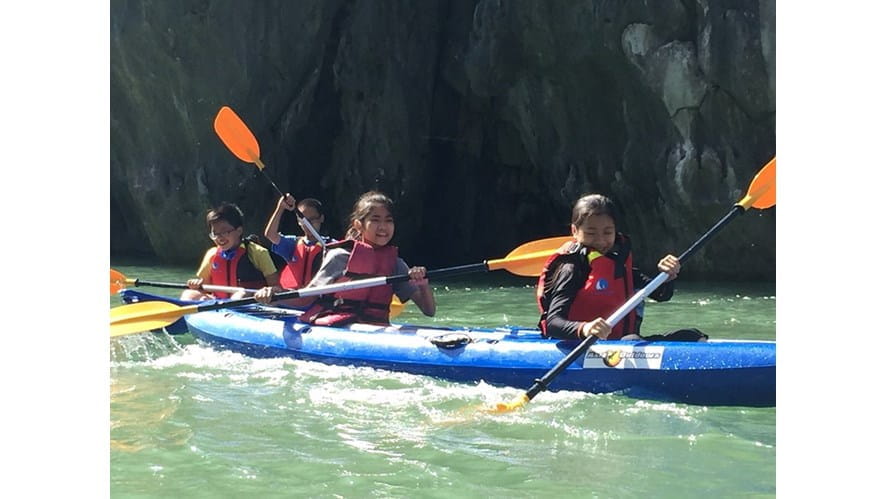We use cookies to improve your online experiences. To learn more and choose your cookies options, please refer to our cookie policy.
Admissions Open 2026-2027
Enjoy 25% off tuition fees for up to 5 years | Register Now

Before the half term holiday all of Key Stage 3 were out of school in either Sapa, Cat Ba or Cuc Phuong. All three trips were a tremendous success and there is still a buzz around school in our first week back. The feedback from pupils and staff was hugely positive which is always wonderful to hear. The importance of getting out of the classroom and into the real world is a vital part of a young person’s development. Organised outdoor activities make an essential contribution to an individual’s ability to thrive in adolescence and adulthood. Outdoor education is positively associated with educational, civic and occupational success in young people.
The best place to learn a language is outside the classroom and on our trips the pupils are exposed to a lot of English. Neuroscience has found that by getting the brain to produce the chemical Dopamine it is left more susceptible to learning. This is done by controlling the reward system. It has been proved that uncertain reward motivation works much better. Humans are attracted to uncertainty and a 50% chance of winning seems to be the magic number. Scientists have proved that rewarding a pupil every time for good work does not equate to the retention of information, quite the opposite.
By using an unconventional reward system in the classroom a teacher can increase learning. This is evident in games because the rewards and the certainly of winning are not guaranteed. The brain is on alert for rewards and wants to avoid losing. Dopamine increases the efficiency in which neurons make connects increasing the likelihood of engagement and learning within pupils. This is more evidence for meaningful real world language practice because what the real world gives the learner is uncertainty. On trips our pupils are out of the city and out of their comfort zone. Their level of uncertainty on trips is perfect for language learning.
As we develop our outdoor education programme over the next few years I urge parents to encourage their children to participate in all our school trips, the Duke of Edinburgh programme, service trips, sports trips, day trips and ski trips.
Mr Nicholas Chaddock - BVIS Trip Cooridinator